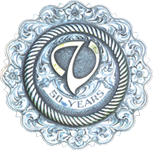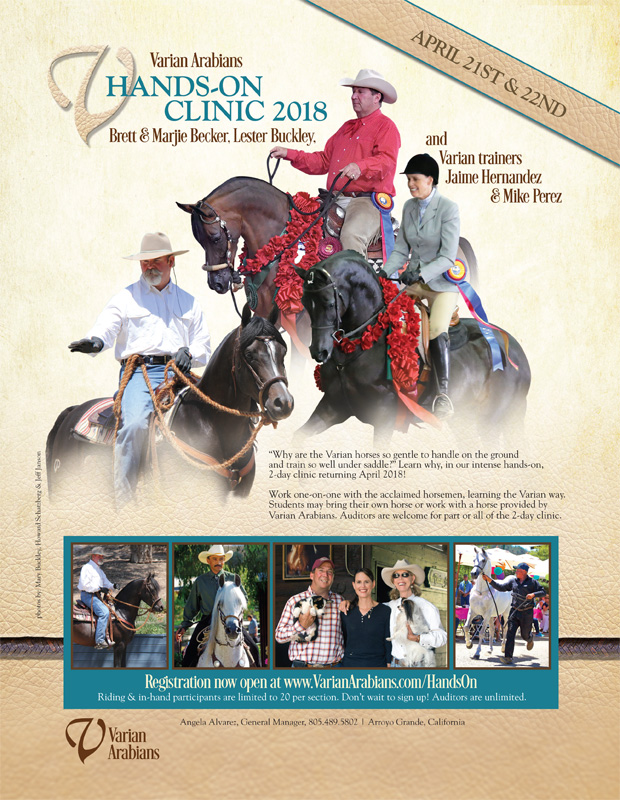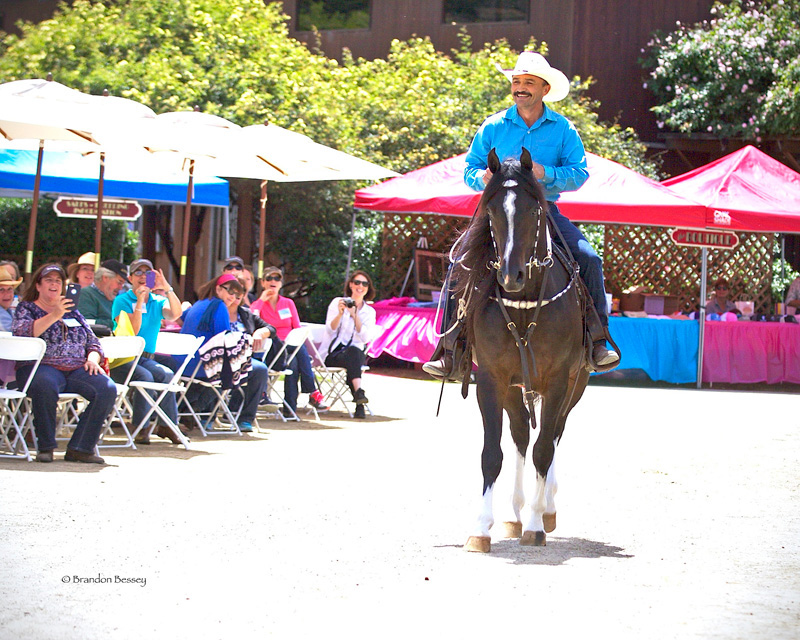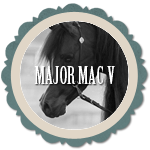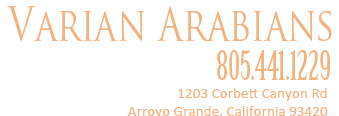2018 Hands-On Clinic Info
Why:
You continuously ask, “Why are the Varian horses so gentle to handle on the ground and train so well under saddle?” So, we are offering an intense hands on 2 day clinic.
What:
Varian Arabians Hands-On Clinic, The Varian Way offers a variety of learning opportunities for horse enthusiasts.
Morning clinics for up to 20 participants will feature lessons on how we train our young horses and the opportunity to learn one-on-one from a fantastic group of clinicians. Participants will work with a Varian Arabian horse or their own 3 year old or older horse (no stallions).
Afternoon clinics for up to 20 participants will feature under saddle lessons and the chance to work one-on-one with the acclaimed horseman Lester Buckley, Arabian industry leaders Brett & Marjie Becker, and Varian trainers Jaime Hernandez and Mike Perez. Students may bring their own horse (no stallions) or work with a horse provided by Varians.
See the "Goals" for In Hand and Under Saddle sections in the tabs below to view a sample from the 2017 handout you receive at the clinic.
For those interested in particpating in the clinic:
Please complete participant signup sheet and email or fax to us.
Participant Signup Sheet : Click here to view/download
There is a monthly payment plan to be paid in full by April 1, 2018.
Contact Angela at (805) 489-5802 or
Auditors Welcome
Both morning and afternoon clinics welcome auditing guests to attend and watch and learn. A lovely continental breakfast and lunch and drinks are included with registration for both participants and auditing guests.
Ground-work clinic requirements:
- Participants should have some minimal prior experience with horses.
Under-saddle clinic requirements:
- Participants need prior riding experience.
- Space is limited to 20 participants.
- Participants may bring their own horses (no stallions) or ride a horse provided by Varians.
- There will be a limited number of Varian Arabian horses available for participants in the under saddle clinic
Please email Angela at:This email address is being protected from spambots. You need JavaScript enabled to view it. to get on a list if you need to reserve one.
Participants who bring their own horse need to supply their own feed. We will supply a paddock, which we will clean daily.
Where:
The Hands-On Clinic will take place at Varian Arabians in Arroyo Grande, California. Varian Arabians lies among the gently rolling hills of the Central Coast of California. The farm is located 1-1/2 hours north of Santa Barbara, fifteen minutes south of San Luis Obispo. Varian Arabians is a peaceful place to visit, beautifully landscaped and surrounded on all sides by permanent pastures and rolling hills. Guests are welcome to bring trailers and RV’s for overnight dry camping in our sandlot or we have a variety of beautiful and comfortable hotels available nearby. Lodging info HERE
Overnight camping - no hook ups - $25 a night.
QUESTIONS?
TALK TO ANGELA DIRECTLY! (805) 489-5802
